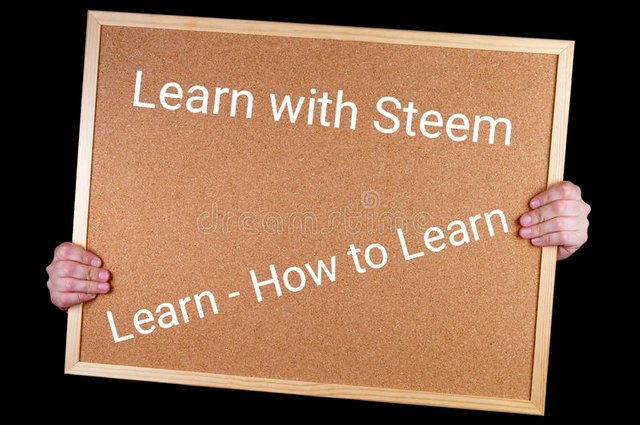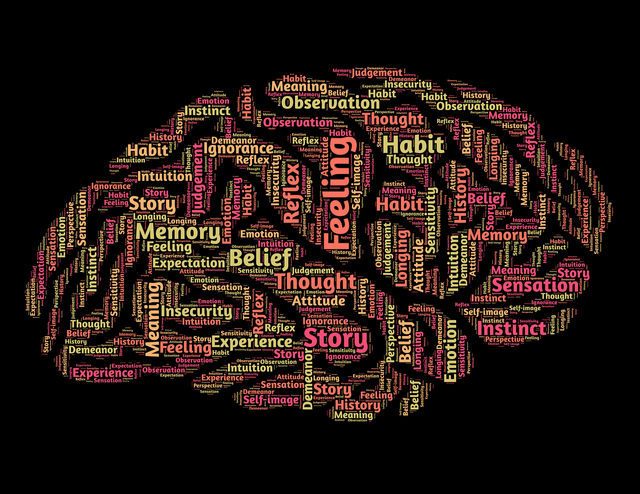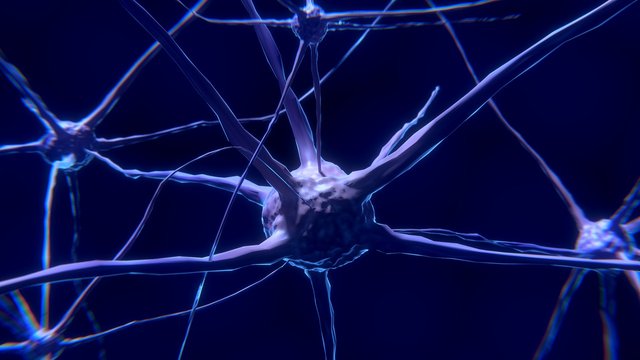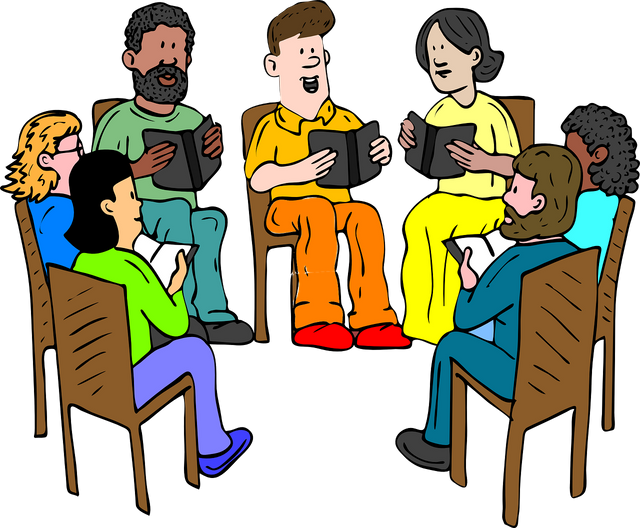Learn with Steem : Learn - How To Learn!
Hello dear friends, today I have chosen to write about a very interesting topic of day-to-day importance to everyone. Through this article, I'll be providing you practical tips and tricks to make your memory sharp to facilitate learning. There won't be any bookish coverage of this topic but you will be able to relate the things to your real life.

It is a matter of common experience that we have seen people complaining about Poor memory. I have experienced this thing in my friend circle, family, relatives etc. So I think it is interesting to learn how to learn.
First let me tell you, what we are going to learn. I'll briefly tell you about memory types and working of memory and then tactics to learn. Kindly note that don't try to skip any section because they are interconnected and you won't understand any section separately.
Memory and its types
Learning is closely related to memory and you can only learn when you can memorise. So to understand the concept of learning better, we should be familiar with memory. we have sensory memory, short-term memory and long-term memory. In books, you will only find short-term and long-term memory.
- Sensory Memory: Things which we can recall based on our senses like touch, sight, smell, hearing and taste. For example, if you are walking along a road in a city where you have never been before, more than 95% of things that come along your way are those that you can recognise like footpaths, rickshaws, buses, water pumps, fuel pump etc As you pass by, the previously seen above-mentioned things are not constantly on your mind or simply you don't remember them. Isn't it?. These were examples of sensory memory based on sight.
Similarly, you can identify the sound heard previously or identify the smell of some of your favourite dishes or identify an egg placed in your hand even when your eyes are closed. These examples involve other senses.
Visual sensory memory lasts for one and a half seconds and auditory sensory memory lasts for four seconds. It is good because otherwise previous memories are going to disturb our focus on the present and impair our learning in the present .it actually applies while studying as well. While reading the newspaper we just focus on the lines which we are reading and as we proceed previous lines vanish from our memory until we are done. Now a thought may come to your mind that we can recall the whole news at the end. There is a definite answer to that and that is not a question related to sensory memory.
Short-term Memory: Whenever students go for a viva we do keep on memorising things even at the door of the viva room. We can recall some things learnt before viva but if we try to recall these things weeks later, we do miserably fail. We may be able to recall a fraction of small things and that has a separate explanation. Why is it so? The answer is that these things are stored in short-term memory. so short-term memory involves retention of a small amount of information for a short period.
Long-Term Memory: For those who have been married, if I ask you about the colour of the dress that you wore at the marriage ceremony, you will recall and answer correctly. Similarly, for those who are unmarried, if I ask you about your first crush( girl/boy), you are going to name. Similarly, there are some (not all) stories that you have witnessed or listened to years or decades before, you will be able to them as they unfolded at the time of occurrence. It is because they are stored in your long-term memory. So long-term memory stores information for a longer duration of time.
How is memory formed in the Brain?
This is more bookish so I won't bore you but just for better understanding, I'll mention a few important aspects of memory.
Memory is a pattern of electrical activities within brain cells located in the frontal part of the brain. To put it simply, memory is created as a result of electrical activities within the brain cells and these electrical activities result in the formation of electrical patterns. Most of these electrical activities are completed by the age of seven years.
So you may think how do we memorize things after 7 years? The answer to this question is that the combination of electrical patterns formed within the brain is so comprehensive that almost about 95% of whatever we learn during life synchronises with the patterns formed before seven years.
To make you understand this concept further let me classify the brain related to memory ( not whole ) into two parts - Habit Brain and the conscious Brain Habit brain stores the above-mentioned electrical pattern memory and the conscious brain comes into play for the present time. So the conscious brain plays the role of promoting learning by focussing on activities going in the present time. That's beneficial in promoting new learning and altering or updating the earlier mentioned memory-like habits. The habit brain is used while performing activities already learned for example while driving we subconsciously apply brake, gears and indicators etc. We talk to our friends or families based on information stored in our habit brain and if we find something new to learn, our conscious brain will learn that thing but the condition is that we must be attentively involved in the present at that time.
Metacognition - How to Learn.
Metacognition is understanding one's thought process and strategies to regulate or manipulate the thought process. In this section, we will discuss what measures should be taken while learning to facilitate an easy understanding of the subject and rapid and long-term retention. While learning anything checklist must be followed
Purpose of learning: Before going through any topic one must have clear-cut purposes for learning. Suppose a student preparing for viva outside the viva room has the purpose to remember the topic only for viva. On the other hand, a student who is preparing for an exam that's scheduled to happen six months later has to learn the topic multiple times and then keep doing rehearsal. A lawyer while studying any law must have purpose of being able to use it in practice .
Any correlation with already learnt content: If correlation with any past event can be drawn then read the topic in correlation with the previous content.
Strategies to learn: Decide the strategies and source to learn. We have multiple sources nowadays like textbooks, internet browsing, Youtube etc. Choose a particular source and stick to the same. It is better to read one topic from a single book ten times than to read once from ten books. So strategies must be clear beforehand.
Check your level of understanding: Ask yourself the question, if you are understanding what you are going through. For the first time, it may often not be possible to understand the whole information but it shouldn't be like that you are understanding nothing. If you understand only 50% in the first reading then that s a good score and will improve with rehearsal.
*Check your final objectives: At the end check whether you have done what you wanted to do. If so then you are successful otherwise look for the checklist again.
These things may seem very much theoretical but as we practice them they are going to become our routine and we may develop a sort of reflex for it.
Tactics to learn things for the long term.
There are no memory hacks but some techniques that have been seen to promote learning over decades by memory specialists and I have also tried all of them during my college days. So I'll mention a few very useful tactics :
Rehearsal
Short-term memory is converted to long-term memory by rehearsals multiple times within the short period of learning a new thing. So for students, the take-home message is that revise the topics taught in your class multiple times on the same day.
Rehearsal is of two types - Maimtainence Rehearsal and Elaborative Rehearsal. Maintainance Rehearsal promotes short-term learning while Elaborative rehearsal promotes long-term learning.
Maintainance rehearsal involves techniques to remember things for a short time. For example, if I'll give you two numbers to recall immediately after giving them, Read carefully. Let's see what happens.
9 3688 2710 3 - have you read it? Recall without looking at it.
5 1987 2022 5 - have you read it? Recall without looking at it.
I think it is easier to remember the second number than the first. It is because in the second number we have the number 5 at the beginning and the end. In between, we have 1987 which is a historical date and then 2022 is the current year. So we broke the second number into blocks and remembered in that way.
A very important point to note here is that divide the topic that you want to study into multiple parts and try to memorise each part separately. It has been seen that our mind also stores information in the form of chunks. Chunking is a very good and beneficial method of learning. For teachers, the message is that don't try to teach too many slides in a single class. Teachers usually think that if several slides are taught in a single class then students may end up remembering more, if not all. Studies have shown that the truth is reverse. If multiple slides are taught in a single class, the chances of remembering decrease significantly. So chunking must be followed while teaching.
Elaborative Rehearsal: it has been seen that things that we learnt in great detail are retained over a long period than thothanhings which are just learnt as factual information. So try to learn things in detail. For students, the take-home message is that don't try to find shortcuts for study material at least for the first time. Books that contain factual information in the form of bullet points about the topics must be read only after going through the topic in detail first.
Peer Assisted Learning
It is said that a teacher is better than a thousand books. So make your friends as your teachers. It has been seen that when you learn in a friendly environment, that promotes better learning. So we should discuss with each other and then read the same topic or do additional research by self-study.
Group Discussions
Group discussion promotes learning similar to peer-assisted learning. In a group discussion, different members share their knowledge and experience and so every member of the group is benefitted and gets deep knowledge of the subject or topic discussed. Group discussion must also be followed by self-study.
Teaching
It is said that teaching means to learn twice. It means that to teach others you should learn twice. Teaching promotes learning because while teaching others you get to know the areas that need to be focussed again.
Tagging or Encoding is a very potent tool for long-term memory. It involves learning through linking or tagging the information with some event /fact /memory /scene etc. There are several methods of encoding :
CONTEXTUAL ENCODING: Here you try to learn the theory concerning its practical context. For example, if you are learning to make a file in MS word if you read it in presence of a computer and you open MS word and do it as written then you are going to store the information for the long term.
SEMANTIC ENCODING: Here you try to link your information to any event so that you can store them for a long time. If ever I am asked in my life about the year of starting crypto trading, I would say it was the same year when Steemit crypto academy started its courses on trading through various lectures given by professors. It is because my trading journey is closely linked to the said event.
Dual Encoding or Audio-Visual Encoding: it involves the use of multiple sense organs to promote learning. So while a teacher delivers a lecture from a projector or board, two senses are involved visual and audio. More the sense involved more prolonged is the memory.
MULTI-ENCODING: If more than two coding mechanisms are involved while learning any topic then that topic has a higher chance of memoising in long term.
Conclusion
Learning or memory is theoretically a boring and complex subject but with experience, people have developed some potential tools and methods to make practical utility easy. Above mentioned methods and Metacognition reflects my understanding of the subject that I have jotted down for you.





Regards
@monz122(Moderator)
Steem India - @steemindaa
Thanks